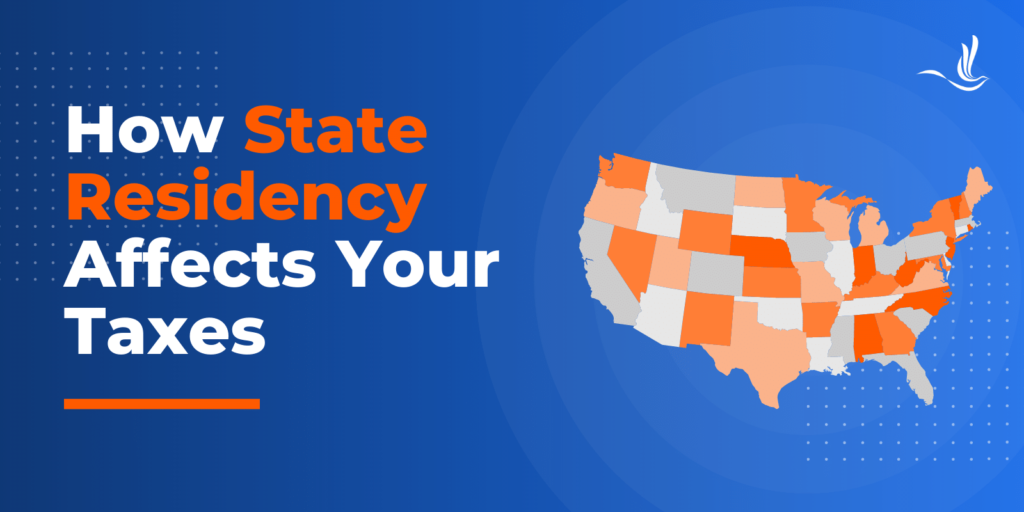
When it comes to taxes, the old adage “location, location, location” takes on a new meaning. State residency plays a significant role in determining the taxes you owe, as each state has its own tax laws, rates, and regulations. Things get even more tricky if you work and live in two different states. In this article, we’ll delve into the intricacies of how state residency affects taxes and why it’s crucial to understand these implications.
Defining State Residency
State residency refers to the place where an individual has established a permanent home and intends to return to when absent. It’s important to differentiate between domicile and physical presence. Domicile refers to the place you consider your permanent legal residence, while physical presence simply refers to your location at a given time.
Residency and Income Tax
One of the most notable ways state residency affects taxes is through state income tax. If you live in Alaska, Florida, Nevada, New Hampshire, South Dakota, Tennessee, Texas, Washington, or Wyoming, you don’t need to worry about income taxes since these nine states do not impose one. The majority of states, however, levy income taxes, and whether you owe taxes in a particular state depends on your residency status, or where your domicile is. States employ different criteria to determine residency status, which can include factors like the amount of time spent in the state, the location of your primary home, voter registration, employment location, location of your children’s school, and driver’s license issuance.
Statutory Residents
Keep in mind that you may only have one domicile at a time, and it is where you will spend more than half of the year living. However, for those who consider two states home may be a resident of one and a statutory resident of the other. To figure out if you are considered a statutory resident, you can use the 183-day rule. If you have spent more than 183 days in one particular state, you are considered a statutory resident and may be liable for taxes in that state as well as your main state of residency.
Dual Residency
You may find yourself in a situation where you are considered a dual resident. Examples of this might include:
- Having homes in two different states
- Living in one state while working in another
- Living in one state, moving to another, and then moving back to the original state
- Moving to another state without establishing domicile there
This means you’ll likely need to file tax returns in both states and pay taxes based on the portion of income earned while a resident of each state. Dual residency can lead to complex calculations, but it’s essential to accurately report your income and residency to avoid potential penalties.
Impact on Sales and Property Taxes
Income tax isn’t the only way state residency can affect your tax obligations. Some states have higher sales taxes or property taxes, which can impact your overall tax burden. Additionally, property tax rates can vary significantly between states, so choosing a state with favorable property tax laws might be an important consideration for homeowners. For example, Texas does not impose an income tax, but they have the sixth highest property tax rates in the U.S. in 2023.
Conclusion
State residency has a profound impact on your tax obligations, affecting everything from income taxes to property and sales taxes. Being aware of the residency rules and tax laws in the state you reside in or are considering moving to is vital for accurate tax reporting and minimizing your overall tax liability. As tax laws can be complex and subject to change, consulting with a tax professional or financial advisor can provide valuable insights tailored to your specific situation. Optima Tax Relief is the nation’s leading tax resolution firm with over a decade of experience helping taxpayers with tough tax situations.
If You Need Tax Help, Contact Us Today for a Free Consultation